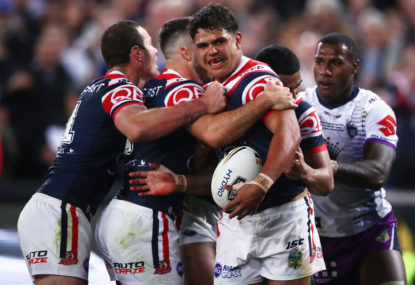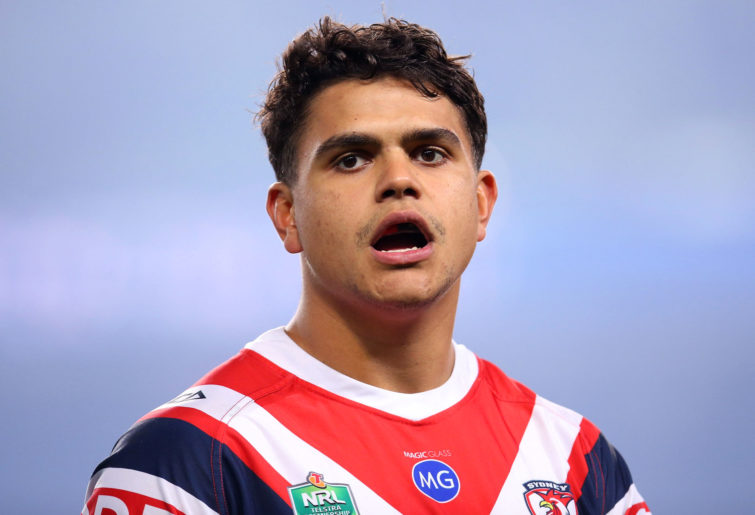NRL Round 7 judiciary: Roosters star duo charged, Eels forward in strife again
James Tedesco will be free for the next game of the Sydney Roosters' inconsistent NRL campaign after escaping suspension for tripping Ryan Papenhuyzen. The…

Latrell Mitchell deciding that he’d rather play for the Indigenous All Stars than feature in the World Club Challenge is a serious shot in the arm for what has been a sputtering concept.
The brainchild of Preston Campbell, the All Stars match was first played as in 2010 but hasn’t quite nailed down a permanent spot on the rugby league calendar, having been rested in 2014 and again last year.
However, the 2019 edition is a new dawn for the concept, with the World All Stars (formerly NRL All Stars) being rested – hopefully retired – in favour of the New Zealand Māori.
Thus we’ll see a match between two teams who are proudly representing their culture – so proud, in fact, that Mitchell is passing up the chance to become a World Champion (if we’re to believe those billboards in the States. Eh, why not?).
That’s not to say the guys who suited up for the World All Stars were embarrassed by their selection – they were the pick of their club in fan-voted polls, which is nothing to sneeze at – but there was no history, family or culture behind the team.
Thus the blokes picked acted a bit like Premier League players facing their former team – you tried your hardest, but kept any celebrations respectfully muted.
Compare that to the first ever try scored in the concept.
Magic – and the crowd absolutely loved it.
The scenes in the stands at the end of the match were similarly thrilling, Jamie Soward’s 74th minute try icing the result in a tight encounter.
By comparison, think about the reactions when the World team won (which they managed on three occasions). It was a bit anti-climactic.
It likely came down to the fact that going for the World team was a choice born of otherness: I’m not Indigenous, so I guess I go for the other team? And no one gets passionate about a default team – especially when the whole point of the concept is to promote reconciliation, as well as celebrate the culture and heritage of the oldest civilisation on the planet.

(Photo by Jason McCawley/Getty Images)
So while I could always see the merit in the concept, I wondered where it was going to end up – the concern being that it would finish on the City-Country scrap heap.
But with the introduction of the Māori, those fears have been well and truly put to bed.
While it’s still a pre-season match with teams of 20 instead of 17, this game is going to be full of fire.
Both teams are chock-full of Origin and international players, with the Indigenous backline looking particularly dangerous, while the Māori pack is basically the best forwards to ever come out of the Craig Bellamy hit factory – and they’re lining up against Andrew Fifita!
Throw in the Haka and Indigenous war cry to kick-start proceedings, and you reckon they’re going be taking it easy on each other?
I doubt we’ll see the same spite, but I’m predicting Origin levels of passion – on both sides.
And that’s exactly what’s needed to see the concept really thrive, because it lies at the heart of rugby league, yet it has been decidedly absent in previous iterations.
But if the passion is present this year, in the levels predicted, the All Stars will become an annual fixture as consistent as the grand final.
Ultimately, while he said “this wasn’t an easy decision”, Mitchell was paying lip service to his club and Roosters teammates when he snubbed the chance to fly to England’s fair North.
He’s going to play in a game that’s about to be completely reborn.
Whereas walking over the top of Wigan in the World Club Challenge is like turning up to the last rites.